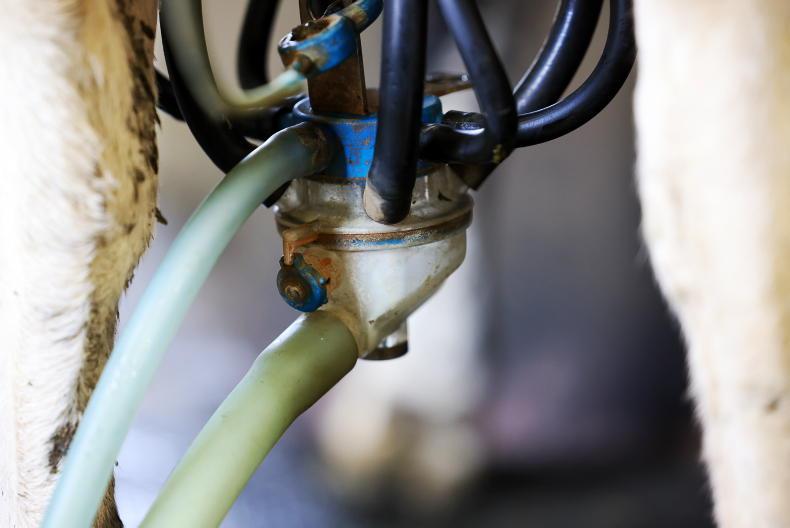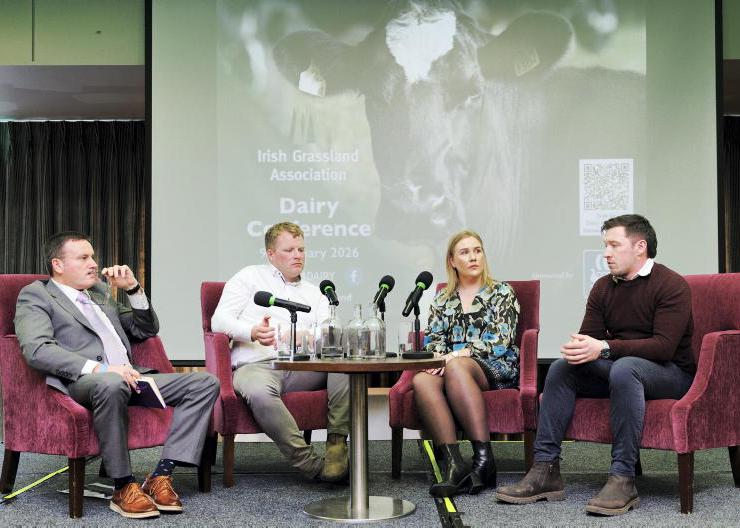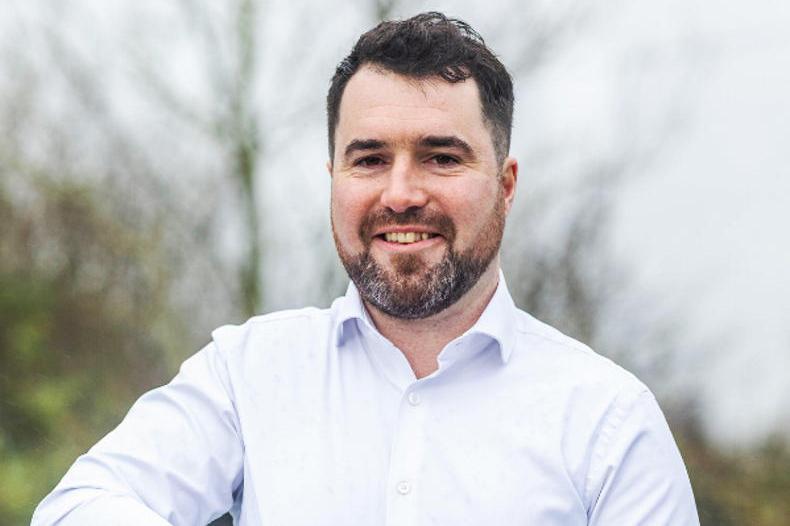Many farmers fear and avoid all discussions around borrowing money. Others don’t realise what they need before approaching the bank.
“There are three or four key requirements that are essential if applying for a loan and while it might seem excessive, all we really want to know is your requirement based on what resources you have and your plan for repayment.”
The words of AIB’s Eamonn O’Reilly as he describes the basic requirements the bank needs when a farmer sits down with them looking for money.
He said: “We have an application form that is available in all branches or available to download from aib.ie/farming and it summarises all the basic information we need to know about the farm.”
This document is fairly substantial and I asked him if a 16-page detailed document is really necessary. Eamonn was quick to respond: “It’s basic information about the farm business that most farmers will know off the top of their head – the acres owned, leased, stock numbers, etc. Yes it takes a little time to fill it out but it sets the foundation for the loan application for AIB.”
The other key requirements for AIB are three years of farm accounts, the ICBF Co-op performance report for dairy farmers which shows some of the technical efficiency and the statement of direct payments.
This shows what payments the farm business is generating and where those payments are likely to go over coming years. Eamonn then said if the loan application is for a very large investment (over €300,000) then the bank may look for a farm business plan to get more long-term projections for the business.
I then asked Eamonn what about a young farmer or farming couple coming in with no track record with the bank or maybe only starting out farming.
“We need to understand where he/she is at, what resources are behind them and if maybe they have no land owned what is the plan and what inheritance or succession plan is in place. The other important point is maybe what experience they have working with other farms or what educational qualifications they have are also important.”
Eamonn said: “We take great comfort from a farmer who comes in having completed a set of costings for the project. For us it’s a great indication that this farmer knows what he is about and what is expected from the investment in the business. If the farm business is operating on leased land then we need to see the duration of the lease for the term of the borrowing.”
Eamonn O’Reilly is an agri adviser with AIB based in the north midlands. The first requirement for Bank of Ireland is three years’ sets of accounts for the farm business and they will create an average set of accounts showing what money the business can develop.
Shane Anglim, agri adviser, explains what Bank of Ireland requires when applying for a loan.
He said: “At the moment, we will look for accounts for the farm business for 2013/2014 and 2015 but from May/June onwards we will ask for 2016 accounts instead of 2013.”
Shane is strong on the understanding that a farmer has of the accounts and what has driven the differences in figures.
He said: “Milk quota rules could have seriously thwarted milk supplied figures and if the farmer can explain the consequences or where output might go that gives us a good understanding about what they know about the business output, etc. Similarly from accounts we need to get an understanding of the drawings taken from the business.”
Like other financial institutions, a summary of the Single Farm Payment and a report showing what direction they are going between 2015 and 2019 is necessary. For dairy farmers, a technical report on performance is required and if the Teagasc profit monitor is available it is taken on board but not critical.
Shane suggests any details that the farmer can show of capital investment made from cashflow or in generating large numbers of replacements will stand to the application.
If a farmer is looking for 100% finance they need to be able to stack it up. I asked if a long-term plan is required? Shane explains if it’s a dairy farmer going from 150 to 170 cows then it’s not necessary. However, if it’s a farmer going from 150 to 300 cows then yes a plan would be required because the whole cost structure will change around labour, etc.
What about a new farmer or farming couple applying for a loan? Track record and a plan are key for Bank of Ireland.
He said: “If a young couple comes in with €30,000 in savings and maybe some stock it’s a hell of a lot better than someone coming in with their hands in their pockets and nothing to show. Again we need to see a realistic plan for the business – any farm won’t start in year one and make €10,000 year two, €20,000 year three and €30,000 year four – that’s not how it happens.”
Shane Anglim is an agri adviser with Bank of Ireland based in the south. Read more
Special focus: agri finance
Many farmers fear and avoid all discussions around borrowing money. Others don’t realise what they need before approaching the bank.
“There are three or four key requirements that are essential if applying for a loan and while it might seem excessive, all we really want to know is your requirement based on what resources you have and your plan for repayment.”
The words of AIB’s Eamonn O’Reilly as he describes the basic requirements the bank needs when a farmer sits down with them looking for money.
He said: “We have an application form that is available in all branches or available to download from aib.ie/farming and it summarises all the basic information we need to know about the farm.”
This document is fairly substantial and I asked him if a 16-page detailed document is really necessary. Eamonn was quick to respond: “It’s basic information about the farm business that most farmers will know off the top of their head – the acres owned, leased, stock numbers, etc. Yes it takes a little time to fill it out but it sets the foundation for the loan application for AIB.”
The other key requirements for AIB are three years of farm accounts, the ICBF Co-op performance report for dairy farmers which shows some of the technical efficiency and the statement of direct payments.
This shows what payments the farm business is generating and where those payments are likely to go over coming years. Eamonn then said if the loan application is for a very large investment (over €300,000) then the bank may look for a farm business plan to get more long-term projections for the business.
I then asked Eamonn what about a young farmer or farming couple coming in with no track record with the bank or maybe only starting out farming.
“We need to understand where he/she is at, what resources are behind them and if maybe they have no land owned what is the plan and what inheritance or succession plan is in place. The other important point is maybe what experience they have working with other farms or what educational qualifications they have are also important.”
Eamonn said: “We take great comfort from a farmer who comes in having completed a set of costings for the project. For us it’s a great indication that this farmer knows what he is about and what is expected from the investment in the business. If the farm business is operating on leased land then we need to see the duration of the lease for the term of the borrowing.”
Eamonn O’Reilly is an agri adviser with AIB based in the north midlands. The first requirement for Bank of Ireland is three years’ sets of accounts for the farm business and they will create an average set of accounts showing what money the business can develop.
Shane Anglim, agri adviser, explains what Bank of Ireland requires when applying for a loan.
He said: “At the moment, we will look for accounts for the farm business for 2013/2014 and 2015 but from May/June onwards we will ask for 2016 accounts instead of 2013.”
Shane is strong on the understanding that a farmer has of the accounts and what has driven the differences in figures.
He said: “Milk quota rules could have seriously thwarted milk supplied figures and if the farmer can explain the consequences or where output might go that gives us a good understanding about what they know about the business output, etc. Similarly from accounts we need to get an understanding of the drawings taken from the business.”
Like other financial institutions, a summary of the Single Farm Payment and a report showing what direction they are going between 2015 and 2019 is necessary. For dairy farmers, a technical report on performance is required and if the Teagasc profit monitor is available it is taken on board but not critical.
Shane suggests any details that the farmer can show of capital investment made from cashflow or in generating large numbers of replacements will stand to the application.
If a farmer is looking for 100% finance they need to be able to stack it up. I asked if a long-term plan is required? Shane explains if it’s a dairy farmer going from 150 to 170 cows then it’s not necessary. However, if it’s a farmer going from 150 to 300 cows then yes a plan would be required because the whole cost structure will change around labour, etc.
What about a new farmer or farming couple applying for a loan? Track record and a plan are key for Bank of Ireland.
He said: “If a young couple comes in with €30,000 in savings and maybe some stock it’s a hell of a lot better than someone coming in with their hands in their pockets and nothing to show. Again we need to see a realistic plan for the business – any farm won’t start in year one and make €10,000 year two, €20,000 year three and €30,000 year four – that’s not how it happens.”
Shane Anglim is an agri adviser with Bank of Ireland based in the south. Read more
Special focus: agri finance









SHARING OPTIONS